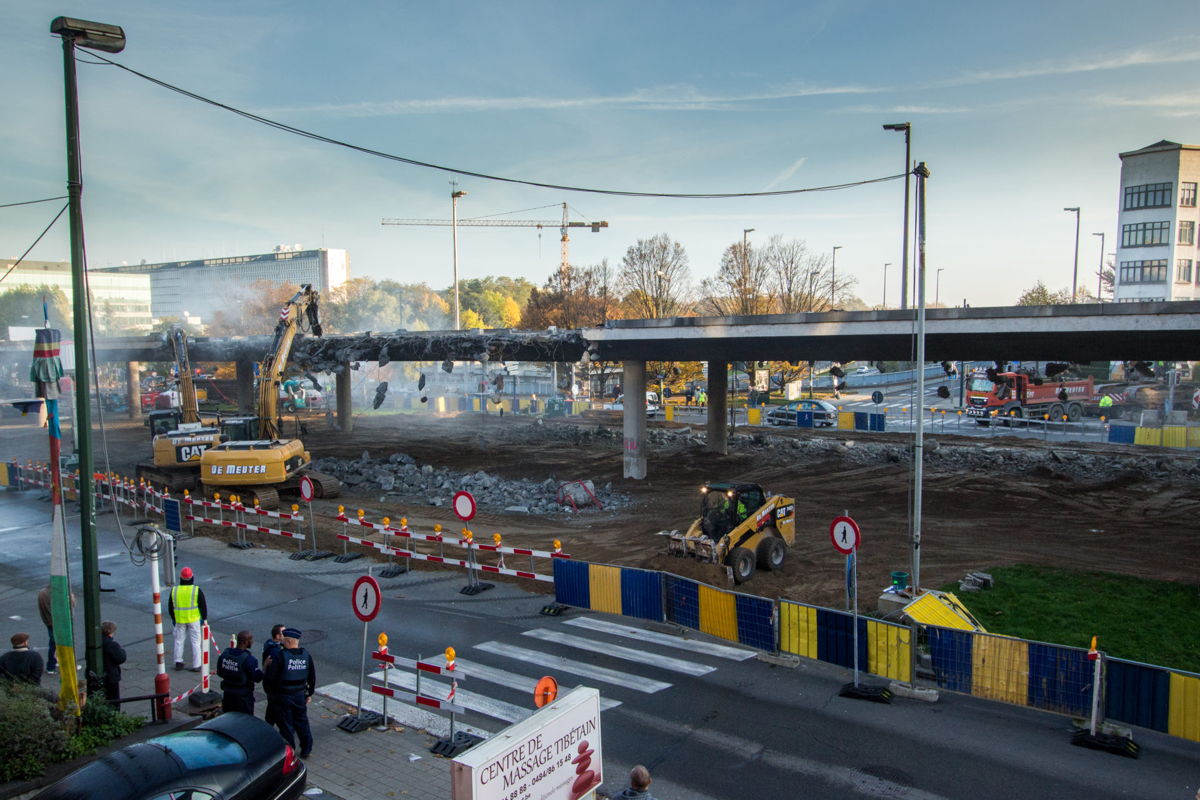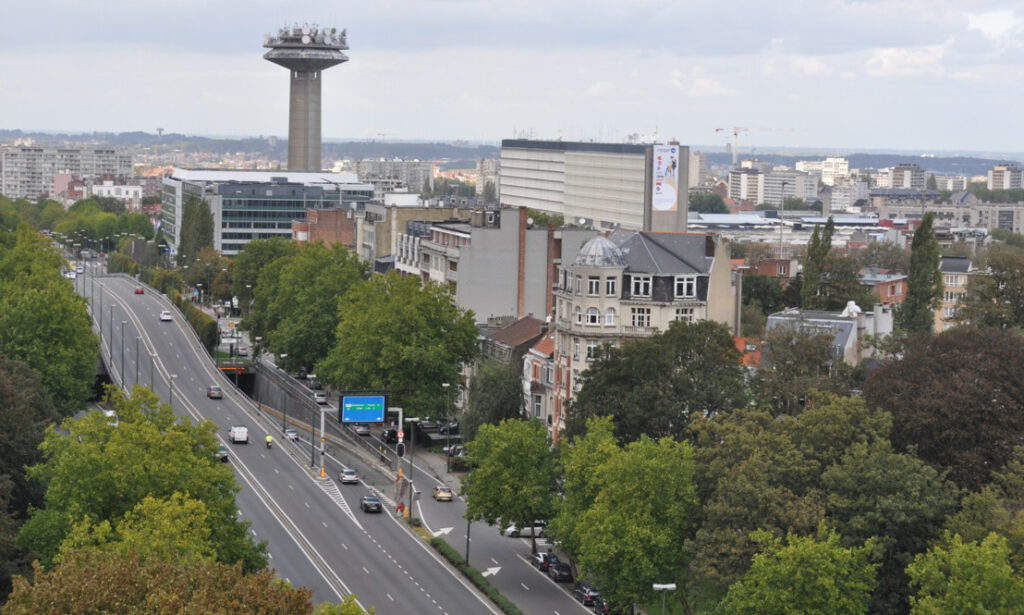Boulevard Auguste Reyers in northeast Brussels is one of the arteries into the capital, with thousands of vehicles making the journey to and from the city centre each day. But plans are afoot to give the avenue a major facelift, making it more friendly to other transport modes.
Until several years ago, the large boulevard was dominated by the vehicle overpass that essentially made the constant file of cars a defining feature. In 2015 Pascal Smet – Mobility Minister at the time – decided not to renovate the imposing concrete structure. Instead the viaduct was demolished with the aim of creating a "pleasant urban avenue" to revitalise the neighbourhood.
On Monday, an urban planning certificate was granted to Brussels Mobility for its plans to transform the main road, which will include more space for pedestrians, cyclists, public transport and greenery.

The destruction of the viaduct. Credit: Cabinet Pascal Smet
"From a city for cars to a city for people. You won't find this transformation of Brussels much more literal than on Boulevard Reyers," said Smet, who now is Brussels State Secretary for Town Planning.
Liveable and safe
So far, the broad plans for the transformation have been approved, with each façade of the boulevard to be reconstructed.
Wide pavements and dedicated two-way cycle lanes will be added, separated by a line of newly-planted trees. More safe crossing points for pedestrians and cyclists will be added, with road safety a key element of the project.
The overhaul of the boulevard, which connects the E40 motorway, Avenue de Cortenbergh and Avenue de Tervueren, is part of a larger plan to "transform busy arterial roads into intermodal urban boulevards," Minister for Mobility Elke Van den Brandt explained.
Related News
- The tangled roots of Brucity, the city’s new flagship
- More space for pedestrians on Brussels' Boulevard Adolphe Max
"These streets will be accessible for all modes of transport and will be greener and more liveable. Brussels is changing from a city focused on cars and transit traffic to a city tailored to residents."
The development certificate details the substantive changes that Brussels Mobility will carry out. "It must now submit the detailed plans so that the works can start," Smet concluded.
Brussels Mobility told The Brussels Times that it hopes to apply for the permit in the summer of 2023 so it can obtain it by early 2024 to finally start the works after the summer of 2024.

